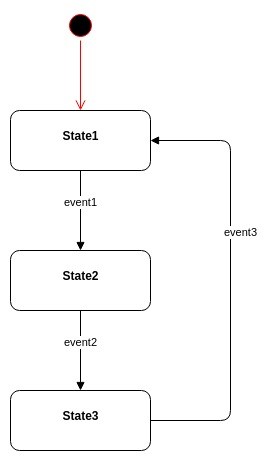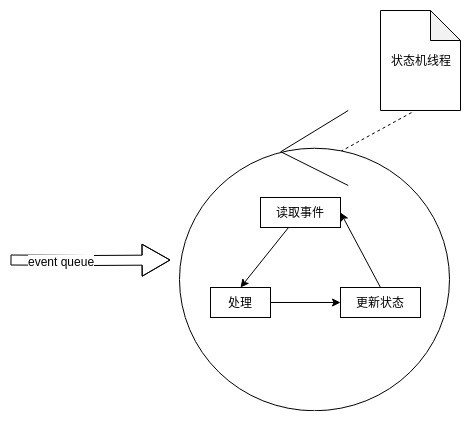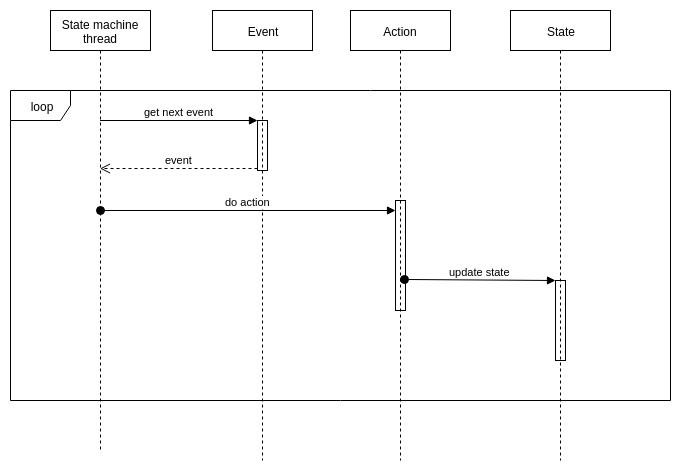Related concepts
- FSM (finite state machine): a state machine with a finite number of States, which is the most commonly used state machine and the object of general discussion
- Infinite State Machine: a state machine with an infinite number of States, rarely used
- State: a state that can be reached by a state
- State transition: the transition of a state machine from one state to another
- Input / input / event / event: an event input that can be received and processed by the state machine, which may cause state changes
The UML representation of the general state is as follows:

General implementation of state machine


A player example
public enum State {
IDLE,
DATA_SOURCE,
PREPARING,
PREPARED,
STARTING,
STARTED,
BUFFERING,
READY,
SWITCHING_PROGRAM,
SWITCHING_CHANNEL,
SWITCHING_DEFINITION,
SWITCHING_ENGINE,
STOPPING,
RELEASING,
ERROR
}
The order of States is very important. Try to follow the form of stack, and deal with special states, such as error.
public class Event {
public static class SetDataSourceEvent extends LoopEvent {
public Uri uri;
public SetDataSourceEvent() {}
public SetDataSourceEvent(Uri uri) {
this.uri = uri;
}
}
public static class PrepareEvent extends LoopEvent {}
public static class StartEvent extends LoopEvent {}
public static class SwitchChannelEvent extends LoopEvent {
public int cateIndex;
public int channelIndex;
public SwitchChannelEvent() {}
public SwitchChannelEvent(int cateIndex, int channelIndex) {
this.cateIndex = cateIndex;
this.channelIndex = channelIndex;
}
}
public static class SwitchDefinitionEvent extends LoopEvent {
public int definition;
public SwitchDefinitionEvent() {}
public SwitchDefinitionEvent(int definition) {
this.definition = definition;
}
}
public static class SwitchEngineEvent extends LoopEvent {
public String engine;
public SwitchEngineEvent() {}
public SwitchEngineEvent(String engine) {
this.engine = engine;
}
}
public static class StopEvent extends LoopEvent {}
}public abstract class Action {
protected abstract void doAction() throws Exception;
}
public class Action1 extends Action {
protected void doAction() throws Exception {
// xxxx
// update state
}
}
...public abstract class LoopStateMachine {
private ActionThread mActionThread = new ActionThread("LoopActionThread");
private BlockingQueue<Action> mActionQueue = new ArrayBlockingQueue<>(100);
private State mState;
public void sendEvent(Event event) {
// Create an action based on the event and insert it into the mpactionqueue
}
private class ActionThread extends Thread {
public ActionThread(String name) {
super(name);
}
@Override
public void run() {
super.run();
while (true) {
try {
LoopAction action = mActionQueue.take();
action.doAction();
} catch (Exception e) {
Logger.w(TAG, "$ActionThread#run(): exception", e);
mState = State.ERROR;
// Continue
}
}
}
}
}